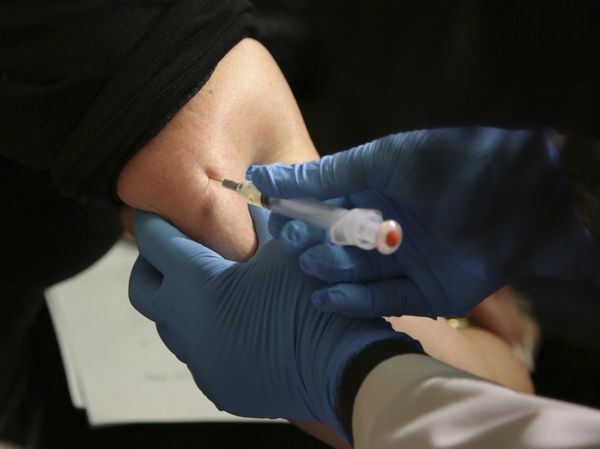One of the volunteers participating in Phase 3 presented a worrisome adverse reaction. They want to know if it was caused by the English university’s potion and the AstraZeneca laboratory.
UNITED STATES (Infobae) – The New York Times was the only media that could confirm, through its sources, the supposed reaction that would have caused the pause in the Phase 3 tests of the experimental vaccine against COVID-19, which are being developed jointly by the University of Oxford and the AstraZeneca laboratory. It is what is known as transverse myelitis.
Up to now, neither the company nor the house of high studies has publicly recognized that it is a matter of that disease, but neither have they denied it despite the consultations. Furthermore, it is not sure that this disease’s appearance in one of the 30,000 volunteers is a consequence of having received the experimental dose.
In any case, transverse myelitis is a strange neuronal disease that attacks the spinal cord. According to the definition of the Mayo Clinic in the United States, “it often damages the insulating material that covers nerve cell fibers (myelin)” and “disrupts the messages that the nerves in the spinal cord send to the entire body”. This can cause pain, muscle weakness, paralysis, sensory problems, or bladder and bowel dysfunction.
“There are many different causes of transverse myelitis, including infections and immune system disorders that attack the body’s tissues. It can also be caused by other myelin disorders, such as multiple sclerosis. Other conditions, such as stroke, of the spinal cord, are often confused with transverse myelitis, and these conditions require other treatment approaches,” the report from that prestigious American health center states.
Treatment is based on the provision of medication and rehabilitation therapy. Most patients make at least a partial recovery. However, if the person suffered a severe attack, “sometimes they are left with significant disabilities.
Symptoms:
– Pain. May begin suddenly in the lower back. The sharp pain can go down the legs or arms, or around the chest or abdomen. The symptoms of pain vary depending on which part of the spinal cord is affected.
– Abnormal sensations. Some people have feelings of numbness, tingling, cold, or burning. Some are especially sensitive to the light touch of clothing or extreme heat or cold. It may feel like something is squeezing the skin on the chest, abdomen, or legs.
– Weakness in the arms or legs, such as signs of heaviness, stumbling or dragging of afoot. Others may have severe weakness or even total paralysis.
– Bladder and bowel problems. This may include the need to urinate more often, urinary incontinence, difficulty urinating, and constipation.
What can cause it? According to the Mayo Clinic, viral, bacterial, and fungal infections that affect the spinal cord can precipitate it. In most cases, the inflammatory disorder appears after recovery from the illness. The viruses associated with transverse myelitis are as follows:
– Herpes virus
– Cytomegalovirus
– The Epstein-Barr
– HIV
– Enteroviruses, such as poliovirus and coxsackievirus
– West Nile;
– Echovirus;
– Zika;
– Influenza;
– Hepatitis B;
– Mumps, Measles, and Rubella.
The brake that worried the world
AstraZeneca announced on Tuesday that it had put its experimental coronavirus vaccine global trials on hold, including extensive studies in the final phase, due to unexplained illness in a study participant.
The vaccine, developed with Oxford University, has been described by the World Health Organization as probably the world’s leading candidate and the most advanced in development. The suspension obscures prospects for early deployment after media reports indicated that the United States sought fast-track approval before the November presidential election.
The British pharmacist said she had voluntarily put the trials on hold to allow an independent committee to examine the safety data and expedite the review to minimize any possible impact on the trial schedule. However, they tried to keep calm: “This is a routine action that has to occur whenever there is a potentially unexplained illness in one of the trials,” the company said in an e-mail statement.
The halt to clinical trials of the COVID-19 vaccine being developed by Oxford University is not a setback and is not the first time. British Health Minister Matt Hancock said Wednesday.
In a statement to SkyNews, Hancock admitted that this interruption is “obviously a challenge for this particular vaccine. It’s not the first time this has happened to the Oxford vaccine, and it’s a normal process in clinical trials”.



